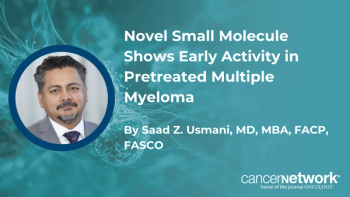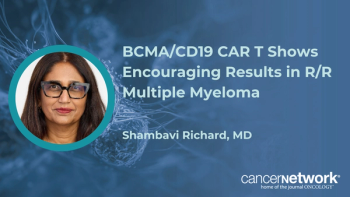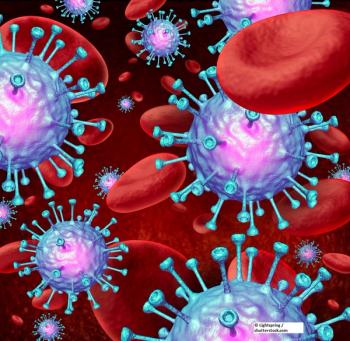
Cases Demonstrated Feasibility of Serial BCMA-Targeted Therapies in Myeloma
Patients with multiple myeloma whose disease progresses on BCMA-targeted therapy can possibly respond to a different BCMA-targeted therapy.
Patients with multiple myeloma whose disease progresses on BCMA-targeted therapy can maintain BCMA expression and possibly respond to a different BCMA-targeted therapy, according to conclusions drawn from a
“Although transient downregulation or loss of BCMA expression has been described following BCMA CAR T-cell therapy, in most cases BCMA expression is maintained at progression, suggesting patients may be able to respond to a subsequent BCMA-targeted modality,” wrote
Cohen and colleagues reported on 2 patients who progressed after BCMA-targeted therapy and subsequently responded to a different BCMA-targeted therapy.
The first patient was a woman aged 59 years treated in a phase I trial with BCMA CAR T cell therapy. By month 2 on trial, her disease was starting to progress. Serial assessment of BCMA expression showed a modest decrease in BCMA compared with baseline, but continued expression of BCMA on the majority of her myeloma cells. Subsequently, the patient enrolled in another phase I trial of antibody-drug conjugate GSK2857916, an anti-BCMA monoclonal antibody conjugated to microtubule inhibitor MMAF. She received 2 doses and achieved minimal response. Therapy was withheld for 6 weeks because of corneal toxicity, and then she received 2 additional doses. The disease progressed again, and the patient received several additional therapies before ultimately dying.
The second patient was a man aged 49 years who received GSK2857916 as part of a phase I study. He received three doses every 3 weeks but continued to have progression on therapy. Myeloma BCMA expression before and after this therapy was not available. The patient was subsequently treated with pembrolizumab, lenalidomide, and dexamethasone and achieved a minimal response before enrolling in a phase I trial of BCMA CAR T cell therapy. He achieved a partial response that is ongoing 1 year after infusion.
“These were patients with limited remaining treatment options who benefited because they had trial options that did not exclude prior BCMA-directed therapy,” the researchers wrote. “This is especially important in the heavily relapsed/refractory setting, in which BCMA CAR T cells, despite their high response rates, do not lead to long-term durable remissions in the majority of cases.”
“These cases demonstrate that BCMA-targeted therapies may be beneficial in patients previously exposed to other BCMA-targeted agents and suggest that this population should be included in future trials,” they wrote.
Commenting on the case report, Nina Shah, MD, of University of California, San Francisco said, "I think this article is an elegant demonstration of how we can potentially apply different BCMA therapies to the same patient. As we do not yet know the reasons for success or failure of these therapies, it is incumbent upon us to continue to pursue these sequential approaches, particularly in the context of a clinical trial."
Newsletter
Stay up to date on recent advances in the multidisciplinary approach to cancer.














































